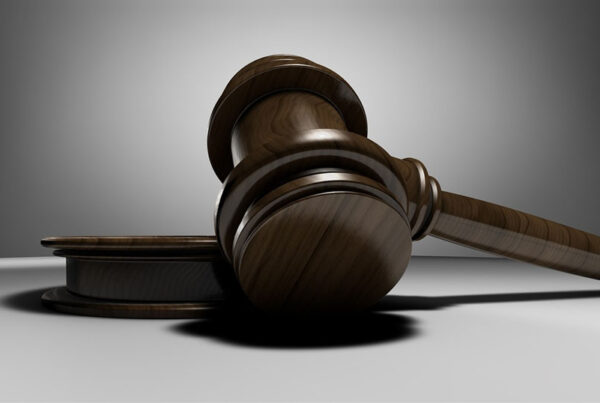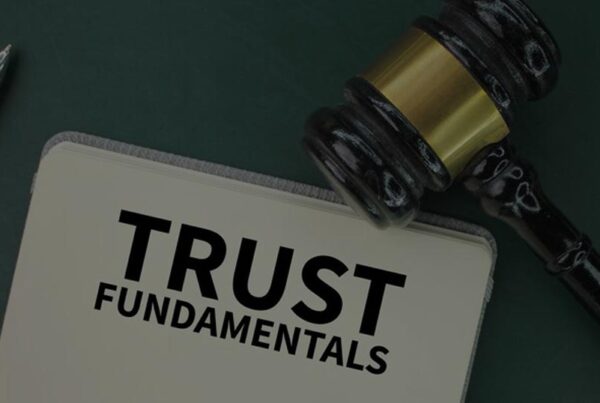WHITE COLLAR CRIMES
How the Federal Government Fights Public Corruption
In 1976, following the Watergate scandal, the Department of Justice (DOJ) established the Public Integrity Section (PIN), a unit charged with overseeing the prosecution of criminal abuses of the public trust by government officials. PIN is granted a broad reach investigating and prosecuting allegations of corruption by not only federal officials in all three branches of the federal government, but state and local government officials as well. This reach even extends to cover allegations of criminal misconduct by federal judges, over which PIN has sole jurisdiction. In 1980, the Election Crimes Branch was created within PIN, further expanding their reach to oversee the investigation and prosecution of voter fraud, campaign-financing offenses and other election crimes.
The only thing that matches their broad reach is the extent of PIN’s involvement in public corruption cases. PIN employs a ‘start-to-finish’ approach—taking cases from the initial allegation and investigation, all the way through trial, conviction and appeal. In spite of their comprehensive role in combating public corruption, the DOJ is not alone in their campaign.
Proclaiming nothing less than national security and our way of life to be at stake, the Federal Bureau of Investigation (FBI) has made public corruption their top criminal investigative priority. The FBI brings a unique set of skills to the table, complementing PIN’s efforts by spearheading complex undercover operations and surveillance. Through the International Corruption Unit (ICU), the FBI also investigates global fraud against the U.S. and the corruption of federal government officials stationed outside U.S. borders.
The FBI extends PIN’s reach not only through its own efforts, but through a growing network of collaboration and coordination with other federal, state and local law enforcement agencies and prosecutor’s offices.
Under What Statutes are Alleged Public Corruption Offenders Charged?
As with many other federal crimes, federal prosecutors are not restricted to a single ‘public corruption statute’ when deciding to prosecute an alleged offender. Depending upon the specific facts of the alleged offense, the government is able to draw from a range of statutes, each requiring the government to prove various elements beyond a reasonable doubt, with different possible penalties. Some of the most common of which include:
18 U.S.C. §201 – Bribery of public officials and witnesses
- 201 criminalizes bribes and illegal gratuities offered or given to or solicited or received by a public official or witness in exchange for the performance of an official act. Under federal law, a bribe differs from an illegal gratuity. A bribe requires the government to prove the intent to influence an official act, or to be influence in regard to an official act. An illegal gratuity, by contrast, is akin to a reward for a public official’s future act, or past act already taken.
Convicted defendants face up to 15 years in prison for bribes and up to 2 years for gratuities. The sentencing court may also order fines up to three times the monetary value of the bribe or gratuity. If that amount exceeds $250,000, it must be pleaded and proved to a jury.
18 U.S.C. §225 – Continuing financial crimes enterprise
To convict an alleged offender under §225, a federal prosecutor must show the defendant organized, managed, or supervised a series of violations under one or more of a variety of federal criminal statutes. It must be shown further that the crimes were committed by at least four persons acting in concert and the defendant received at least $5 million from the violations during any 24-month period.
A convicted defendant faces steep penalties. The defendant “shall be fined” up to $10 million if an individual ($20 million if an organization) and a prison sentence of 10 years to life.
18 U.S.C. §666 – Federal program fraud and bribery
This statute applies to any organization, state, local or Indian tribal government, or an agency thereof (the entity) that receives during any one-year period benefits exceeding $10,000 from a Federal program. To convict under §666, a federal prosecutor must prove the defendant was an agent of the organization, government or their agency, and the defendant-agent:
- embezzled, stole or fraudulently converted property with a value of at least $5,000 belonging to the entity – §666(a)(1)(A), or
- solicited or accepted something of value (a bribe or illegal gratuity) from someone other than the entity, in return for which, the defendant-agent intended to be influenced or rewarded for a transaction, or a series of transactions of the entity involving something worth at least $5,000 – §666(a)(1)(B).
- 666(a)(2) applies to defendants who are not agents of the entity. Here, a federal prosecutor must show the defendant gave, offered, or agreed to give something of value (a bribe or illegal gratuity) to another person to influence or reward an agent of the entity in connection with some business, transaction or series of transactions of the entity worth at least $5,000.
If convicted, a defendant faces penalties up to 10 years in prison and fines up to $250,000.
Other statutes under which alleged public corruption offenders may be charged include, but are not limited to:
- 18 U.S.C. §§1341 & 1343 – Mail and wire fraud
- 18 U.S.C. §1951 – Interference with commerce by threat of violence (Hobbs Act)
- 18 U.S.C. §1952 – Interstate and foreign travel or transportation in aid of racketeering enterprises (Travel Act)
- 18 U.S.C. §1962 – Racketeering influenced and corrupt organizations (RICO)
Public Corruption in the News
On March 2, 2021, Federal authorities in Los Angeles arrested a former Homeland Security agent, Feliz Cisneros, Jr., for accepting cash and other benefits in exchange for taking official action to support an individual liked to organized crime, including assisting two foreign nations to gain entry into the United States. Cisneros was indicted with conspiracy to commit bribery of a public official, bribery and 26 counts of money laundering. The indictment alleges that Cisneros received at least $122,000 from one individual during 2015 and 2016.
Cisneros faces up to 5 years in prison for the conspiracy charge, up to 15 years for bribery and up to 20 years in prison for each money laundering charge.
Contact an Experienced Public Corruption Defense Attorney Today!
White Collar Crimes
Recent Posts






